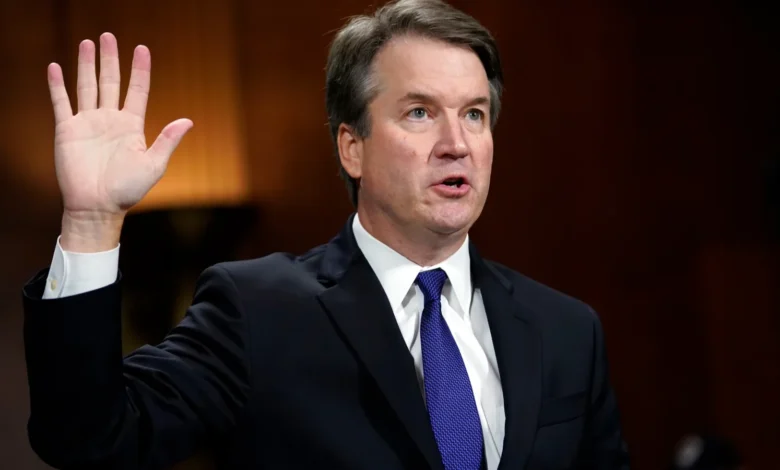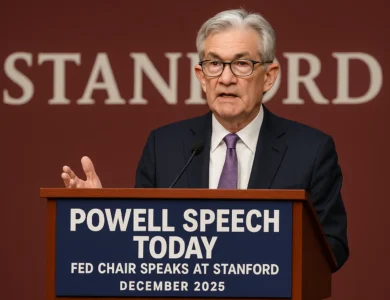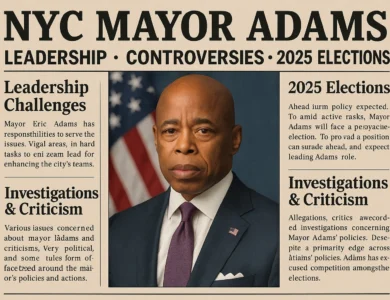
Brett Kavanaugh stands as one of the most discussed and debated figures in modern American jurisprudence. As an Associate Justice of the United States Supreme Court, Kavanaugh has become a household name not only for his judicial decisions but also for the contentious confirmation process that brought him to the nation’s highest court. This comprehensive guide explores every aspect of Brett Kavanaugh’s life, career, and impact on American law.
From his early days as a law clerk to his current position on the Supreme Court, Kavanaugh’s journey through the American legal system reflects broader themes in contemporary politics and judicial philosophy. His appointment in 2018 marked a significant shift in the court’s ideological balance, making him a pivotal figure in shaping American legal precedent for decades to come.
Understanding Brett Kavanaugh requires examining not just his legal opinions and judicial record, but also the political and social context that has defined his career. This article provides readers with a thorough exploration of his background, legal philosophy, major cases, and the lasting impact of his Supreme Court tenure.
Early Life and Educational Background
Childhood and Family Origins
Brett Michael Kavanaugh was born on February 12, 1965, in Washington, D.C., to parents who would significantly influence his future legal career. His father, Edward Kavanaugh, worked as a lobbyist and later served as president of the Cosmetic, Toiletry & Fragrance Association. His mother, Martha Gamble Kavanaugh, became a Maryland circuit court judge, providing Brett Kavanaugh with early exposure to the legal profession.
Growing up in Bethesda, Maryland, Kavanaugh experienced a privileged upbringing that afforded him access to elite educational institutions. This background would later become a point of discussion during his Supreme Court confirmation hearings, as critics and supporters debated the implications of his socioeconomic status on his judicial perspective.
Academic Excellence and Formative Education
Brett Kavanaugh’s educational journey began at Georgetown Preparatory School, a prestigious Jesuit institution where he excelled both academically and athletically. His time at “Georgetown Prep” laid the foundation for his later success, though it would also become a source of controversy during his confirmation process.
Following his preparatory education, Kavanaugh attended Yale University, where he earned his Bachelor of Arts degree in American history in 1987. His undergraduate years at Yale were marked by academic achievement and involvement in various campus activities. He then continued at Yale Law School, graduating in 1990 with his Juris Doctor degree.
At Yale Law School, Kavanaugh served as a notes editor for the Yale Law Journal, demonstrating early signs of the legal acumen that would define his career. His law school experience provided him with connections and mentorship opportunities that would prove invaluable in his subsequent legal career.
Legal Career Before the Supreme Court
Early Professional Experience
After graduating from law school, Brett Kavanaugh began his legal career with a clerkship for Judge Walter Stapleton of the U.S. Court of Appeals for the Third Circuit. This initial experience in the federal court system provided him with foundational knowledge of appellate procedure and judicial decision-making.
Kavanaugh then secured a highly coveted clerkship with Associate Justice Anthony Kennedy of the Supreme Court during the 1993-1994 term. This experience proved transformative, as it provided him with intimate knowledge of the Supreme Court’s operations and judicial philosophy. Ironically, Kavanaugh would later fill the seat left vacant by Justice Kennedy’s retirement.
Private Practice and Government Service
Following his Supreme Court clerkship, Kavanaugh entered private practice at Kirkland & Ellis, a prestigious law firm where he gained experience in complex litigation and corporate law. However, his career trajectory soon shifted toward public service and political involvement.
Brett Kavanaugh became involved in Republican politics, working on various high-profile cases and investigations. He served as an associate counsel in the Office of Independent Counsel under Kenneth Starr during the investigation into President Bill Clinton. This role placed him at the center of one of the most significant political controversies of the 1990s.
During the George W. Bush administration, Kavanaugh held several important positions, including Associate White House Counsel and later White House Staff Secretary. These roles provided him with extensive experience in executive branch operations and constitutional law issues.
Journey to the D.C. Circuit Court
Nomination and Confirmation Challenges
In 2003, President George W. Bush nominated Brett Kavanaugh to the United States Court of Appeals for the D.C. Circuit, often considered the second most important court in the country. However, his confirmation process proved lengthy and contentious, taking over three years to complete.
Democrats in the Senate raised concerns about Kavanaugh’s partisan political background and questioned whether his previous roles in Republican administrations would affect his judicial independence. The confirmation battle foreshadowed the even more intense scrutiny he would face during his Supreme Court nomination process.
Judicial Record on the D.C. Circuit
Brett Kavanaugh finally joined the D.C. Circuit in 2006, where he served for twelve years before his Supreme Court appointment. During this period, he authored over 300 opinions and established himself as a conservative jurist with particular expertise in administrative law, constitutional law, and regulatory matters.
His opinions on the D.C. Circuit revealed a judicial philosophy emphasizing textualism and originalism, approaches that focus on the plain meaning of legal texts and their original understanding at the time of enactment. Kavanaugh frequently questioned the scope of federal agency power and advocated for robust separation of powers principles.
Notable cases during his D.C. Circuit tenure included decisions involving environmental regulations, healthcare policy, and national security matters. His judicial record became a crucial factor in his later Supreme Court nomination, as both supporters and critics analyzed his opinions for insights into his judicial philosophy.
The Supreme Court Nomination Process
Selection by President Trump
In July 2018, following Justice Anthony Kennedy’s announcement of his retirement, President Donald Trump nominated Brett Kavanaugh to the Supreme Court. The nomination was part of Trump’s broader effort to reshape the federal judiciary with conservative appointments.
Kavanaugh’s nomination was initially viewed as relatively straightforward, given his extensive judicial experience and previous confirmation to the D.C. Circuit. However, the confirmation process would prove to be one of the most contentious in Supreme Court history.
Confirmation Hearings and Controversies
The Senate confirmation hearings for Brett Kavanaugh began in September 2018 and quickly became a national spectacle. Initial hearings focused on his judicial record, constitutional interpretation, and views on key legal issues including abortion rights, presidential power, and regulatory authority.
The process took a dramatic turn when Dr. Christine Blasey Ford came forward with allegations of sexual assault against Kavanaugh from their high school years. Additional allegations emerged, leading to extensive FBI investigations and additional hearings that captivated the nation.
Brett Kavanaugh vehemently denied all allegations and delivered an emotional defense during his testimony before the Senate Judiciary Committee. The hearings highlighted deep political divisions in American society and raised important questions about the Supreme Court confirmation process.
Final Confirmation
Despite the controversies, Brett Kavanaugh was confirmed by the Senate on October 6, 2018, by a narrow vote of 50-48. His confirmation solidified a conservative majority on the Supreme Court and marked the culmination of a decades-long effort by conservative legal organizations to reshape the nation’s highest court.
Judicial Philosophy and Legal Approach
Constitutional Interpretation
As a Supreme Court Justice, Brett Kavanaugh has consistently demonstrated adherence to textualist and originalist methods of constitutional interpretation. This approach emphasizes understanding legal texts according to their plain meaning and original public understanding at the time of adoption.
Kavanaugh’s judicial philosophy aligns with other conservative justices on the court, particularly in areas involving separation of powers, federalism, and individual rights. His opinions frequently reference historical sources and founding-era documents to support constitutional interpretations.
Key Legal Principles
Throughout his judicial career, Brett Kavanaugh has emphasized several core legal principles. These include respect for constitutional text and structure, skepticism of expansive federal agency power, and strong protection for individual constitutional rights including free speech and religious liberty.
His approach to statutory interpretation similarly emphasizes textual analysis and congressional intent, often questioning broad administrative interpretations of federal statutes. Kavanaugh has consistently advocated for clear separation between legislative, executive, and judicial powers.
Major Supreme Court Cases and Decisions
Landmark Opinions
Since joining the Supreme Court, Brett Kavanaugh has authored several significant majority and concurring opinions that demonstrate his judicial philosophy in practice. His opinions often reflect careful textual analysis and historical research, characteristics that have become hallmarks of his judicial approach.
Kavanaugh has written important decisions involving administrative law, where his previous experience on the D.C. Circuit proves valuable. His opinions frequently question the scope of federal agency authority and emphasize the need for clear congressional authorization for major regulatory actions.
Notable Dissents and Concurrences
In cases where he disagrees with the majority, Brett Kavanaugh’s dissenting opinions provide insight into his judicial reasoning and constitutional interpretation. These dissents often emphasize his commitment to originalist methodology and separation of powers principles.
His concurring opinions frequently elaborate on legal reasoning or provide additional historical context for the court’s decisions. Kavanaugh uses these opportunities to clarify his understanding of constitutional principles and their application to contemporary legal issues.
Impact on American Jurisprudence
Influence on Court Dynamics
Brett Kavanaugh’s presence on the Supreme Court has contributed to a solidly conservative majority that has reshaped American law across multiple areas. His vote has been decisive in several important cases involving regulatory authority, constitutional rights, and federal power.
The addition of Kavanaugh to the court has enabled more aggressive challenges to long-standing precedents and federal agency actions. His judicial philosophy has influenced the court’s approach to administrative law, constitutional interpretation, and separation of powers issues.
Long-term Legacy Considerations
As a relatively young justice, Brett Kavanaugh potentially faces decades of service on the Supreme Court. His long-term impact on American law will likely extend far beyond his initial years on the court, influencing multiple generations of legal precedent.
His confirmation marked a significant moment in the ongoing debate over the role of the federal judiciary in American government. Kavanaugh’s tenure will likely be remembered as part of a broader conservative legal movement that reshaped constitutional interpretation in the early 21st century.
Conclusion
Brett Kavanaugh represents a pivotal figure in contemporary American jurisprudence whose influence extends far beyond his individual judicial opinions. From his early career as a law clerk to his current position on the Supreme Court, his journey reflects broader themes in American legal and political development.
Understanding Brett Kavanaugh requires examining not only his legal philosophy and judicial record but also the political and social context that has defined his career. His confirmation process highlighted deep divisions in American society, while his subsequent judicial service has contributed to significant shifts in constitutional interpretation.
As Kavanaugh continues his tenure on the Supreme Court, his impact on American law will undoubtedly continue to evolve. His commitment to textualist and originalist interpretation, combined with his extensive experience in federal courts, positions him as an influential voice in shaping the future direction of American jurisprudence for years to come.
Read More: Nepal Appoints First Female PM Amid Political Crisis 2025






